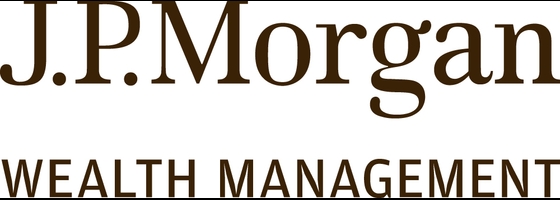- Relatively low fee cap of 0.6%.
- Low minimum required investment of $25,000.
- Services are customized to each client with a live team member.
Best Financial Advisors in 2024

Our evaluations and opinions are not influenced by our advertising relationships, but we may earn a commission from our partners’ links. This content is created by TIME Stamped, under TIME’s direction and produced in accordance with TIME’s editorial guidelines and overseen by TIME’s editorial staff. Learn more about it.
Even for the best informed among us, managing investments can be a challenge. While hiring a financial advisor may seem like territory reserved for the wealthy, in truth, investment advice is available at many price points, and can be helpful regardless of your net worth.
This is especially true in the post-pandemic economic landscape. While a roller-coaster housing market and exorbitant inflation rates finally seem to be settling down, the last few years took a toll on many Americans’ financial outlook. Below, we explore some of the most popular online brokers who offer financial advice from real, live human beings.
Find the right financial advisor with WiserAdvisor
Find the right financial advisor with WiserAdvisor
| Broker | Best for | Fees | Account minimum | Assets under management | Promotion |
|---|---|---|---|---|---|
J.P. Morgan Wealth Management | Beginning investors | 0.6% or less | $25,000 | $4.3 trillion | N/A |
Higher net worth | 0.89% or less | $100,00 to $250,000: investment services; $250,000 to $1 million: wealth management; over $1 million: private cllient | $1.3 trillion | N/A | |
Rewards | 1.50% or less | $500,000 | $4.4 trillion | N/A | |
Low fees | About 0.3% | $50,000 | $7.6 trillion | N/A | |
Customizable services | 0.80% or less | $500,000 | $500,000 | N/A | |
Facet | Flat fees | Flat fee starting at $2,000 per year | $0 | $1 billion | N/A |
Edward Jones | Choosing your own advisor | 0.09% to 0.19% annual portfolio strategy fee, plus annual program fee of 1.35% or less | Starting at $25,000 depending on asset types | $1.6 trillion | N/A |
INVESTMENT AND INSURANCE PRODUCTS ARE: NOT A DEPOSIT • NOT FDIC INSURED • NO BANK GUARANTEE • MAY LOSE VALUE
If you’re a beginning investor looking to have your hand held the whole way, J.P. Morgan can help—and with a 200-plus-year history and $4.3 trillion in assets under management (AUM), they have the reputation and longevity to back up their services. Any J.P. Morgan investor with at least $25,000 to invest can sign up to have a team member contact them and walk them through the advisory process and recommended services. Plus, a fee of 0.6% or less is competitive.
With a minimum required investment of $100,000, financial advisement at Empower isn’t in reach for every investor. For those who qualify, the firm offers personalized advice with an eye toward tax efficiency. Along with tax-loss harvesting, Empower private clients get access to private equity investments usually only accessible to wealthy and institutional investors. Advisors can help clients prepare for financial goals like retirement and helping fund a higher education, as well as tackling estate planning and reviewing insurance coverage amounts on a regular basis.
Along with holistic wealth management with a dedicated Fidelity advisor—or a wealth management team, in the case of investors with at least $2 million—eligible Fidelity clients also have access to an array of rewards and benefits. Fidelity also has specialized offers including trust services, fixed income and bond investing, and integration with third-party tax planning and preparation services.
While Vanguard offers a digital advisor service—essentially a robo-advisor—for those with at least $3,000 invested, its personal advisor tier starts at $50,000, which is still relatively low and accessible. Investors at this tier will have access to a blend of automated tools and professional advisory services for a fee of “approximately $30 per $10,000 invested,” which comes out to 0.3%—one of the lowest tiers on our list. (Dedicated personal advisory service from a Certified Financial Planner (CFP) is reserved for investors with at least $500,000.)
Not every investor needs every service—and most certainly don’t want to pay for services they don’t need. Fortunately, Charles Schwab offers a range of investment accounts and service levels that you can customize to your personal requirements. (The firm’s self-directed brokerage account comes with no account minimums and no fees.)
For those in need of dedicated wealth management, Charles Schwab’s team of experts is available once investors reach the $500,000 threshold. Fees max out at 0.80% and decrease for those with higher levels of assets under management.
Many financial advisors assess fees as a percentage of assets under management. The highest tiers are typically reserved for those with the least amount of money under advisement. Facet, on the other hand, assesses a flat fee starting at $2,000 per year—going up from there based on the complexity of your financial situation. While investors would have to have a significant investment to break even on this model—at least $300,000, compared to a fee of 0.8%—it could make financial planning easier for those wanting to know exactly what they’ll spend on advisory services. And, a $0 minimum makes Facet’s advice accessible to anyone who can afford it.
These days, much of financial advising is done remotely either by phone or video call. But for those looking for in-person meetings, Edward Jones is a valuable exception to the rule. With a large network of offices across the country, Edward Jones helps you match with a financial advisor near you or you can choose your own if there’s someone specific you want to work with.
We reviewed seven of the most popular firms offering financial advisory services, assessing factors including available services, fees, implemented tax efficiency strategies, customer service reputation, total assets under management, and more. We then chose advisor services for specific categories of client need and benefit. We focused on well-known online brokers, not including smaller, local firms. Our list is not comprehensive or exhaustive, and available services and fees may change at any time.
With so many options available, choosing a financial advisor can be a challenge. The following tactics can help you narrow the choices and focus in on the right fit for you.
Not all advisory services are created equally and neither are all investors. Some people are looking solely for investment advice, while others want professional assistance with the whole kit and kaboodle—retirement, putting the kids through college, choosing insurance products, and more.
Deciding how much assistance you need will help you hone in on advisory service providers that offer your choices at a price that makes sense for your portfolio. And it can also help you avoid overpaying for services you’re not actually in the market for.
The whole point of wealth management is to help you retain and grow as much of your hard-earned money as possible and set yourself up for financial success now and in the future—but of course, financial advisors need to make their living, too.
Still, as an investor looking for advice, fees should be part of your calculation; obviously, the lower the better (so long as the firm is legitimate and reputable). Again, it may help to choose less-inclusive service tiers to save money if you don’t actually need holistic wealth management. And, of course, those with more money to invest will usually enjoy lower wealth management price points.
A financial advisor who is a fiduciary is legally bound to put your best interests first, regardless of how they are compensated, as opposed to, for example, recommending investments based on the commissions they earn.
Your financial advisor should be a fiduciary whose compensation doesn’t directly depend on what you invest in. Certified Financial Planners (CFPs), for example, are fiduciaries. Insurance agents, on the other hand, are generally not. Note that some professional financial advisors can work under a “suitability standard” rather than a fiduciary one, which means the decisions they make must be “suitable” for your needs, but not necessarily the absolute best.
When you choose an advisor within a brokerage, be sure your advisor is a fiduciary—because many brokerages offer advisors who are as well as advisors who are not. You can ask your advisor or investment brokerage this question directly, and you can also look up your broker with BrokerCheck to get a more detailed understanding of their history.
Not sure real, live financial advice is a fit or priced right for you? Fortunately, there are some worthy alternatives to consider.
Robo-advisors are, as their name suggests, largely run by robots—or, if not literal robots, complex algorithms (made and managed by real humans) that can make investment management a much more passive (and therefore cost-efficient) process. Robo-advisors can’t take the place of human beings dedicated to helping you plan your financial future or provide holistic financial planning services. But they can take some of the guesswork out of the process of allocating your assets.
If you’re willing to take matters into your own hands, many investment firms offer extremely low-cost ways to manage your investments in a self-directed brokerage account. They may also provide additional research and education materials to help you make the best possible decisions. While DIY investing can be overwhelming at first, a digital world means more information is available than ever, and self-directed investors may be on the hook for nothing more than trade and commissions fees. Some online brokers offer access with no account management fees or minimums.
According to the data gathered by the U.S. Bureau of Labor Statistics (BLS) in 2022 the mean hourly wage for financial advisors is $66.22 and the mean annual wage $137,740. Those in the 75% percentile earned $165,590 annually, while those in the 90% percentile earned $239,200 per year or more.
Financial advisors’ fees range in both amount and type. In many cases, financial advisory fees are assessed as a percentage of a client’s assets under management. For example, if you invested $300,000 at a firm whose annual advisory fee was 0.6%, you’d pay $1,800 (though of course specific figures shift as investments grow and change). Other firms might assess a flat fee, usually starting at a few thousand dollars per year, for advisory services.
Financial advisors traditionally are devoted to helping investors choose specific investments and helping them shape and reshape their portfolios as the market shifts and changes. These days, though, the term is often used interchangeably with “financial planner.” A financial planner might help with more holistic goals such as calculating exactly how much you need at retirement or reviewing insurance-coverage options.
According to the same BLS data referenced above, more than 283,000 people in the United States are employed as personal financial advisors. Most work at investment firms.
Although the terms are often used interchangeably, financial advisors have a narrower scope than financial planners. Generally, a financial advisor’s job is to help investors manage their investments. A financial planner has a more comprehensive job, helping clients set themselves up for long-term financial stability. This often includes investing, but also encompasses things like estate planning, planning for retirement, and more. (Another word for financial planner is wealth manager.)
When it comes to choosing a financial advisor, there is no one-size-fits-all best advice. By searching for an advisor who offers services tailored to your financial needs, you can find the advice you need at a price that makes sense for your portfolio.
It’s impossible to name a specific bank that has the best financial advisors. There are many well-qualified advisors working for a wide variety of firms, not just banks. However, when searching for a financial advisor, it’s always a good idea to look for a fiduciary who is bound by law to put your best interests first, rather than working on a commission-based model that incentivizes upselling. Certified Financial Planners (CFPs) are fiduciaries, for example.
Given the complexity of planning a firm financial future—not to mention navigating the stock market—many investors do think it’s worth paying for professional financial advice. Many firms assess fees as a percentage of assets under management, ensuring your expenses will always be in proportion to the amount of money you’ve invested. These fees are often a fraction of a percent, which can be well worth it for the service of holistic financial planning. Keep in mind, however, that account minimums in the hundreds of thousands of dollars may apply.
While there’s no set amount of money at which financial advice becomes absolutely necessary—or unnecessary, for that matter—many financial advisors have minimum investment requirements to start. In some instances, the investing barrier may be as low as $25,000 (and planning services may be limited or aided by digital tools like robo-advisors). But many financial advisors’ minimums—or their most valuable services—start at $500,000 or even $1 million or more.
The information presented here is created by TIME Stamped and overseen by TIME editorial staff. To learn more, see our About Us page.











